A Conversation About Veganism: How it Shapes our Food Systems, Fisheries, and Lives
You might be surprised to see an article about veganism coming from a program with both a strong legacy of fisheries policy, and many students—including one of the authors—studying or working in fisheries across the U.S. We are motivated to write this article because we feel like it shouldn’t be surprising at all. While many people likely think of veganism as adhering to a moral doctrine with near-militant levels of strictness, following plant-based trends, or perhaps a facade of moral superiority, we discovered that we had a much different definition.
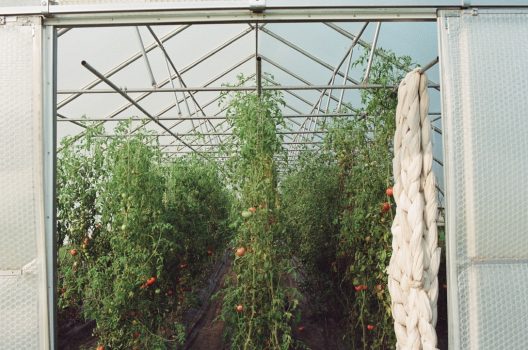
While chatting with each other, we learned that our respective definitions of veganism largely follow the same moral framework as most vegans. It is a system of thinking that acknowledges that animals are deserving of our moral consideration by virtue of their existence as sentient beings capable of feeling joy and pain and having complex inner lives.
However, we choose to modify this system to incorporate flexibility, and account for accessibility and privilege—we live in a world where being vegan is not always an option for everyone, whether that’s due to income, access to produce and sources of vegan protein, cultural or spiritual beliefs about animals, or many other reasons. That isn’t to say that convenience or pleasure are justifications to consume animal products, but we acknowledge that our veganism is context-dependent and may need to adapt depending on our access or means to purchase vegan products.
To us, admonishing people’s decisions around reducing harm is counterproductive. Encouraging people to reduce animal suffering as much as possible is a far more inclusive and accessible approach that will have a broader impact. After fielding some questions from our colleagues about our beliefs, we realized that writing a more in-depth discussion about our approach could be at worst interesting, and at best beneficial. We crowd-sourced questions from our peers and took turns answering them, ultimately creating the conversation below. Our hope is that it sheds some light on what it means to be a vegan in the world of fisheries and environmental policy, and perhaps serves as a bridge to having more open conversations about ethics and morality within these fields.
Did your decision to become a vegan happen all at once? Or was it a gradual change? What informed your decision?
Jack: Always a lover of nature, wildlife, and the outdoors, it wasn’t until my early 20s that I began to properly consider myself an “environmentalist”. This entailed thinking more about how my own personal actions and purchasing habits were impacting the planet. I learned about the disproportionate footprint that animal products, notably meat and dairy, have on both land use and carbon emissions. I began reducing my consumption of these products to reflect my environmental values and eventually decided to try going vegetarian for a month with a friend. It was a lot easier than I expected and I decided to stick with it. It was during that time that I began learning more about the inhumane conditions animals face in factory farms and some of the ethical arguments against eating meat. These conditions have been widely reported on by independent investigators as well as authors such as Peter Singer and Michael Pollan. While I acknowledge that there is a debate to be had around “ethical slaughter”–the reality is that 99% of meat is produced in factory farms. For these reasons, I eventually decided to transition to a fully vegan diet–a process that admittedly took time and was by no means perfect.
Luke: Similar to you, I’ve always felt close to nature, but I never truly examined my personal consumption and its repercussions on animals until I was in college. I had my eyes opened to some of the conditions that animals are subjected to and felt horrified. I really started to see animal products in a different light—I would make a conscious effort to trace each “product” back to the living being that it came from. That started me down a gradual path towards veganism, which really crystallized after working on farms in Maine and talking with coworkers who were vegan. I started to accept, on a deeper level, that animals are our equals and have just as much interest in living a good life as humans. And I started to realize the pervasiveness of a largely exploitative and objectifying attitude towards animals, which was unsettling to say the least and pushed me towards changing my habits.
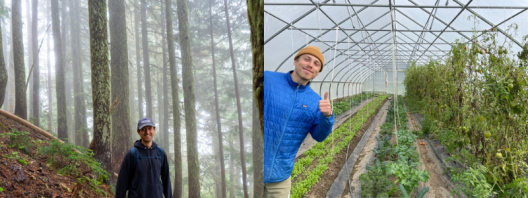
What does being vegan mean to you?
Luke: I feel like a lot of people view veganism as a dietary restriction. To me, veganism is a moral stance that enshrines two ideas—that animals have rights simply by existing and, perhaps more importantly, that one of those rights is that they are deserving of our moral consideration. What follows from accepting those two things are a series of questions that most people would likely have a really easy time answering, such as “are you okay with animals unnecessarily suffering?” I like to think that most of the world would immediately shout “of course not!” Where veganism pushes me is to then consider whether our commodification and exploitation of animals causes them unnecessary suffering—I would say in most cases, yes it does.
However, I don’t view being vegan as requiring a specific outcome (e.g. becoming “morally perfect” and never using animal products again). Instead, I define veganism as simply grappling with this moral dilemma, and doing the best that you can to reduce suffering.
Jack: I would also add that for me being vegan is about acknowledging that a lot of the distinctions our culture makes between different animals are to a great extent arbitrary. It feels hypocritical to me to see people highly value certain animals in the world–pets, charismatic wild animals, endangered species–yet not extend that value to the equally deserving animals that are raised for food. The idea that a certain level of intelligence, ability to show affection, or “rarity” in the world somehow imparts more value on one life over another is not one that really sits well with me (not to say that we shouldn’t also value these traits–we can do both!). I believe that all sentient life is worthy of our consideration. I know that my individual actions alone aren’t going to have a widespread impact, but I do not have any sufficient justification to support these exploitative industries with the values I hold. Being vegan is a way for me to align my actions with my values.
“Being vegan is a way for me to align my actions with my values.”
What are some of the challenges you’ve faced as you’ve adopted this lifestyle?
Jack: For me, it has always been and still is the social aspect of eating food that makes being vegan challenging. Irrespective of the trends towards more plant-based options in stores and restaurants, we still live in an incredibly meat-centric society. Most people aren’t vegan or vegetarian, and therefore most social events are not catered to have sufficient vegan options. Even in climate and environmental related spaces, I am consistently shocked and frustrated to see the lack of plant-based options available. And when they are available, they often aren’t good (please not another plate of iceberg lettuce!). Additionally, when traveling to new places, or visiting family and friends, there is always a bit more planning involved to ensure that I’ll have enough to eat. Ultimately, I don’t let these challenges deter me because I believe that the more that veganism becomes normalized in our culture, the more options will become available, and the easier it will be for others to give up animal products.
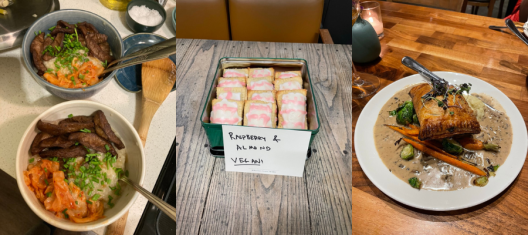
Luke: I didn’t realize how ingrained in our culture it is to eat animal products until I stopped eating them—it is truly shocking to me now that for many people, meat is present in every meal, every day. Similarly to you, I think that the social aspect of being a vegan is the most challenging. Occasionally, I will eat vegetarian while traveling just to avoid having to be the driver of every single plan involving food. Another challenging aspect of being vegan for me has been that a lot of people seem to think that it’s a form of moral superiority. I’ve experienced moments of pushback, or people searching for ways to poke holes in my morals (“you bought second hand leather shoes, that’s a loophole!”). Taking a moral stance but accepting that I’m imperfect and sometimes make mistakes or exceptions is emotionally taxing, especially when it can feel like people are eager to spot and call out any seeming hypocrisy.
“Taking a moral stance but accepting that I’m imperfect and sometimes make mistakes or exceptions is emotionally taxing, especially when it can feel like people are eager to spot and call out any seeming hypocrisy.”
How does your identity as a vegan intersect with other identities you hold? Such as being an environmentalist or fisheries researcher?
Luke: I think given that the basic principle of veganism is essentially extending empathy towards animals, it trickles down into most aspects of my identity. Basically, it has begun to define a lot of how I move through the world. I think one issue that I’ve struggled with is feeling like I need to hold myself to a standard of “moral perfection” in order to be deserving of the vegan label or be part of the community. The way I’ve dealt with that pressure has been trying to accept that the road to moral perfection is fraught with contradictions, exceptions, and hypocrisy.
If I hold myself to a standard of “perfect” veganism, who’s to say that my decisions to buy an iPhone, drive a car, buy vegetables from an industrial-scale organic farm, or any number of decisions aren’t causing harm to animals, or people, or the environment? I don’t think that’s an excuse to not try at all, but I also refuse to believe that veganism and being an environmentalist or fisheries researcher are incompatible. I think that any moral or ethical stance requires a certain degree of reconciliation and negotiation—the stakes are different when the lives of animals are involved, certainly.
In this sense, I think that veganism provides a decision-making framework that my other identities adopt, grounded in placing immense value on other living beings and fully considering each decision I make, along with the alternatives available to me.
Jack: Similarly, veganism is just one of many identities I hold and is essentially just another extension of my core beliefs. The fight for animal liberation is a movement that often gets a lot of flak, and at times comes into conflict with the broader environmental movement and other social causes. To me, all of these movements are manifestations of the same fight against systems of oppression and hierarchy. At the end of the day, more progress can be gained by recognizing the shared values between these movements than by debating the nuances. There are certainly inner conflicts I have between my veganism and other identities, and grappling with the questions about when to prioritize one framework over another is something I often struggle with.
Veganism and fisheries seem morally incompatible on paper, but questions around animal welfare and ethics are certainly a topic within fisheries. How do you incorporate veganism into your work/studies and join some of those conversations?
Jack: The ethical basis for a lot of what I do is the idea that the reduction of unnecessary suffering is an inherently good thing. All of my work, in both environmental and social spheres, is grounded in this belief. Fighting climate change is the right thing to do because if we don’t, the scale of human suffering that will be faced by people alive today and those yet to be born will be unimaginable. Preventing this crisis will take large-scale change on all levels of society that not only elevates the wellbeing of disadvantaged groups, but does so in a way that does not further strain the planet. How this gets done in practice is something that philosophers and policymakers have been debating for years, and I’m eager to be a part of those discussions. Veganism is simply the extension of this belief to nonhuman animals that also have a right to live free of unnecessary suffering.
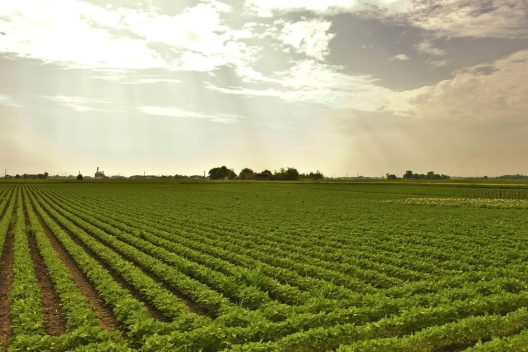
Luke: I will admit that in an ideal world, to me, we would not fish. It would not be necessary from a nutritional or food standpoint, it would be considered unnecessarily harmful from a cultural standpoint, and anyone who relies upon fishing for their livelihood would be able to find an alternative form of providing sustenance, connecting with nature, carrying on tradition, and making income that doesn’t cause harm to animals. However, I fully recognize that we don’t live in my ideal world. I recognize that for some people, they rely upon fish for sustenance in a very critical way. I recognize that for some people, fishing is inextricably a part of their life through culture, tradition, and spiritual beliefs, and that there are different ways of knowing and experiencing a relationship with nature that are valid. I recognize that there are some people whose livelihoods are entirely dependent upon fisheries, and that many of them are stewards of the ocean and do everything they can to minimize the suffering of fish outside of the actual act of killing an animal. Instead of looking for ways that veganism clashes with my studies or work, I choose to instead find areas of alignment, of which there are usually many.
Does veganism have a role in shaping the future of our food system?
Jack: It certainly does. A sustainable future is one that must incorporate values of respect to both animals and land. The agricultural industry as it currently stands needs to be overhauled if we want to be able to grow enough food to sustain billions of people while still leaving enough room for natural ecosystems to thrive. Current practices have led to deforestation, soil erosion, and water scarcity, but this doesn’t need to continue. The values of veganism can inform new ways of growing food by encouraging more thoughtful and respectful practices such as regenerative agriculture or permaculture. These land-use practices don’t necessarily imply a system entirely free from animals (chickens produce great manure!), but can compel us to think more about the role that animals play in the food system. Even modern advances in technology, such as the process of precision fermentation, have the potential to lessen the strain on natural resources and reduce unneeded animal suffering while still providing people with essential protein and nutrients. It is important to note that these are large scale systemic changes that are needed, and no single person going vegan will change the entire food system. But by shifting cultural attitudes related to how we interact with animals and the land we can contribute to broader social movements that create these systemic changes.
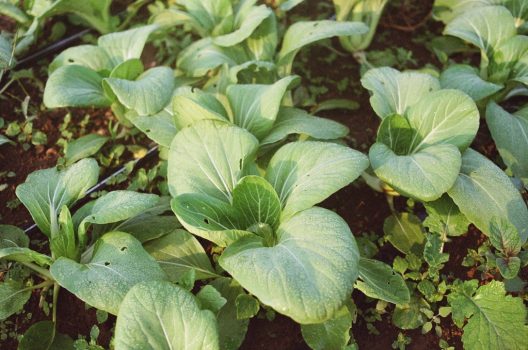
Luke: I would like to create a food system that provides healthy sustenance for everyone, in a manner which is highly conscious of culture and tradition, socio–economics, animal welfare, and environmental stewardship, and which reduces the unnecessary suffering of animals as much as is feasible, especially when it comes to factory farming. I don’t think “strict” veganism is necessarily the solution to this—it’s not a silver bullet and there are complexities with ethnocentrism that can be difficult to contend with. However, I do think that our current food system and its focus on exploiting animals is deeply flawed, and has had widespread and damaging consequences. One way that we could see effective change is by focusing on finding areas of alignment and common ground, which would entail veganism moving from the margins of our food system into playing more of a role in shaping local, regional, and national governance as it relates to food.
Note from the authors: Through our conversation, we hope that we’ve been able to share more about our perspectives on veganism and the role it plays in our work and personal lives. We could easily discuss and debate much more about the nuances of animal agriculture and the philosophical underpinnings of veganism, but we hope this serves as a good introduction to the topic. If you are interested in learning more or trying out some delicious plant-based food, check out these resources: